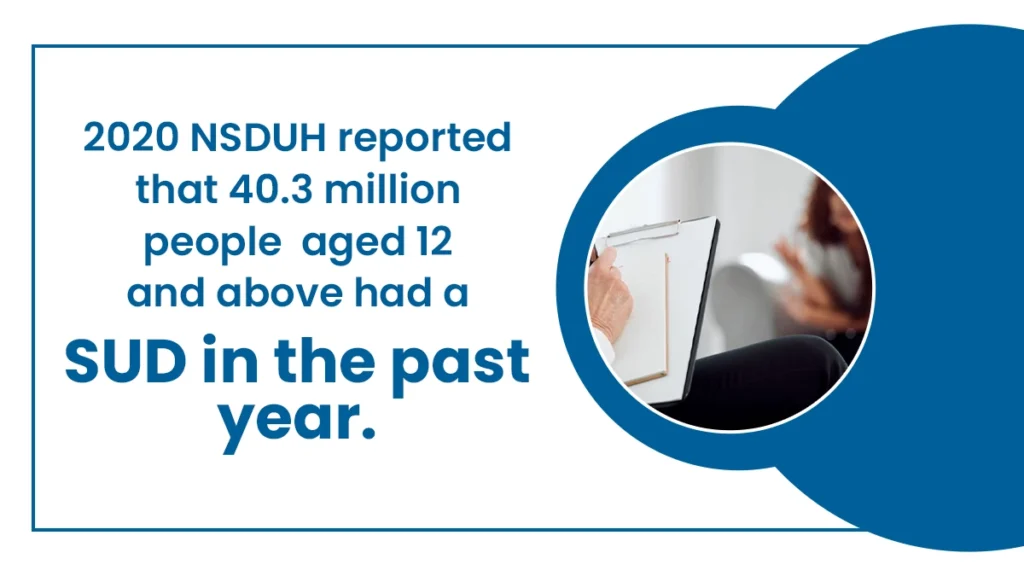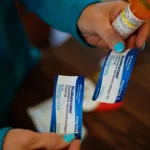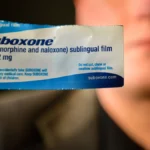Medication-assisted treatment (MAT) is a proven approach for treating substance use disorders (SUDs). It involves the combination of two crucial elements: medication and counseling.
During MAT, the patient is prescribed FDA-approved medications, such as methadone, buprenorphine, or naltrexone, to manage withdrawal symptoms and cravings. In addition, counseling and behavioral therapies are provided to address the mental aspects of addiction and support long-term recovery.

MAT has proven to be a valuable tool in fighting drug addiction, helping people regain control of their lives and achieve lasting sobriety.
Key Takeaways
Drug and alcohol use disorder is a rising issue in the United States, and MAT is one of the effective ways to tackle this issue. Here’s more about MAT:
- MAT combines medications, counseling, and therapy to address addiction’s physical and mental aspects.
- Methadone, buprenorphine, and naltrexone are medications used in MAT to reduce withdrawal symptoms and cravings.
- Counseling and therapy provide support, help people develop coping skills, and address root causes contributing to addiction.
- MAT is effective in improving treatment outcomes and overall well-being.
Don’t hesitate to reach out to The Haven Detox-Little Rock to get the support you need to overcome drug addiction. Contact us at (501) 271-3342 for more information.
Rising Addiction Rates in the US
The United States is currently facing a concerning rise in addiction rates, impacting individuals and communities across the nation. According to the 2020 National Survey on Drug Use and Health (NSDUH), 40.3 million Americans aged 12 and above had a SUD in the past year.
MAT is a practical approach to treating substance use disorders. With the combination of medications and therapy, MAT helps people overcome withdrawal symptoms, reduce cravings, and improve treatment outcomes.
However, despite the effectiveness of MAT, access to these treatments remains a challenge. Only a fraction of individuals who could benefit from MAT actually receive it.
Expanding access to MAT services is crucial to combating addiction and reducing its devastating impact on individuals, families, and communities nationwide.
Importance of MAT in Addiction Recovery
Medication-assisted treatment (MAT) helps individuals recover from addiction. It is especially effective in addressing opioid addiction, which has become a significant public health concern in the United States.
Healthcare professionals prescribe the medications used in MAT to block the effects of opioids or reduce cravings. These medications can be taken in different forms, such as pills, injections, or patches, making it convenient for people to adhere to the treatment plan.
In addition to medication, counseling and therapy are integral parts of MAT. They provide emotional support, help individuals develop coping skills, and address the underlying causes of addiction.
MAT improves lives and reduces the risk of relapse. MAT allows people to focus on their recovery journey and regain control over their lives by minimizing withdrawal symptoms and cravings.
Understanding the Types of Medications in MAT
Medication-assisted treatment (MAT) offers different medications to help individuals break free from the effects of addiction and achieve lasting recovery. Three commonly used medications in MAT are methadone, buprenorphine, and naltrexone.
Let’s explore each of these medications and their role in addiction treatment.
Methadone
Methadone, a long-acting opioid medication, helps reduce withdrawal symptoms and cravings. It activates the same brain receptors as other opioids but in a milder way, alleviating withdrawal symptoms without producing a high.
Methadone is typically administered in specialized clinics, helping people stabilize their lives while minimizing the risks associated with opioid misuse.
Buprenorphine
Buprenorphine is another medication used in MAT. It is a partial agonist, which means it activates the opioid receptors in the brain but with less intensity than full opioids like heroin.
Buprenorphine helps reduce cravings and withdrawal symptoms. It comes in different forms, such as sublingual tablets or dissolvable films.
Naltrexone
Naltrexone is a different type of medication used in MAT. It is an opioid antagonist, meaning it blocks the effects of opioids in the brain. By blocking the opioid receptors, naltrexone prevents opioids from producing a high.
Naltrexone is available as a pill or an extended-release injection, making it easier for individuals to adhere to their treatment plan.
MAT Integrated Therapy for Lasting Recovery
In addition to medication, medication-assisted treatment (MAT) often incorporates various types of therapy to enhance the recovery process. These therapies work hand-in-hand with the medications to provide comprehensive treatment.
Three commonly used therapies in MAT are:
Cognitive Behavioral Therapy (CBT)
CBT focuses on helping people identify and change negative thought patterns and behaviors. It aims to develop healthy coping skills, manage triggers, and prevent relapse. Individuals learn practical skills through CBT to overcome challenges and create a more positive mindset.
Motivational Interviewing (MI)
MI is a collaborative approach that helps individuals explore their motivation and resolve any ambivalence about treatment. It involves empathetic listening, open-ended questions, and goal-setting.
MI encourages individuals to discover their reasons for change, boosting their internal motivation and commitment to recovery.
Contingency Management (CM)
CM utilizes positive reinforcement to encourage and reinforce positive behaviors. Individuals are rewarded for meeting treatment goals, such as attending therapy sessions, abstaining from substance use, or achieving milestones in recovery. Rewards can include vouchers, privileges, or other incentives, reinforcing the positive progress made.
Success Rates and Effectiveness of MAT
Medication-assisted treatment (MAT) has proven highly effective in helping people break free from addiction and achieve lasting recovery. Numerous studies have shown its success rates and effectiveness.
Studies indicate that MAT can reduce the risk of death from substance abuse by more than 50 percent. Research has also shown that MAT reduces relapse risk and improves treatment program retention.
Furthermore, MAT has been endorsed by various reputable organizations, including the Substance Abuse and Mental Health Services Administration (SAMHSA) and the World Health Organization (WHO). These endorsements highlight the significant evidence supporting its effectiveness.
Frequently Asked Questions (FAQ)
What are examples of medication-assisted treatment?
Examples of medication-assisted treatment (MAT) include:
Methadone
Buprenorphine
Naltrexone
These medications, when combined with counseling and therapy, form a comprehensive approach to addiction treatment. MAT helps individuals overcome addiction, stabilize their lives, and reduce the risk of relapse.
What are the major components of medication-assisted treatment?
The major components of medication-assisted treatment (MAT) include medications, counseling, and therapy.
Medications such as methadone, buprenorphine, and naltrexone help manage withdrawal symptoms, reduce cravings, and prevent relapse.
Counseling and therapy provide support and help individuals develop coping skills, address underlying issues, and make positive changes in their lives.
Why is medication-assisted treatment important?
Medication-assisted treatment (MAT) helps individuals overcome addiction and improve their lives. MAT combines medications, counseling, and therapy to address substance use disorders effectively.
MAT reduces withdrawal symptoms and cravings, making it easier for people to recover. By stabilizing individuals and minimizing the risk of relapse, MAT allows them to regain control over their lives.
What is a criticism of medication-assisted treatment?
One criticism of MAT is that it may be seen as replacing one addiction with another. Some argue that using MAT medications for a long time can lead to dependence on those new substances.
There is concern that people may become reliant on medication rather than addressing the root causes contributing to their addiction. Critics also highlight the potential side effects and risks associated with MAT medications.
However, MAT has been widely researched and has proven to be an effective approach to addressing addiction.
The Haven Detox-Little Rock: Your Recovery Partner
The Haven Detox-Little Rock is here to support you on your journey to recovery. Our team of professionals provides effective treatment that can change your life.
At The Haven Detox-Little Rock, we offer a range of services, including medical detox, residential treatment, evidence-based therapies, and medication-assisted treatment (MAT).
Our MAT program follows a whole-person approach. It combines medications with therapy to ease withdrawal symptoms and cravings, helping you regain control and rebuild your life. Don’t wait another day to seek the help you deserve. Contact us now at (501) 271-3342 and take that courageous step toward a brighter future.



